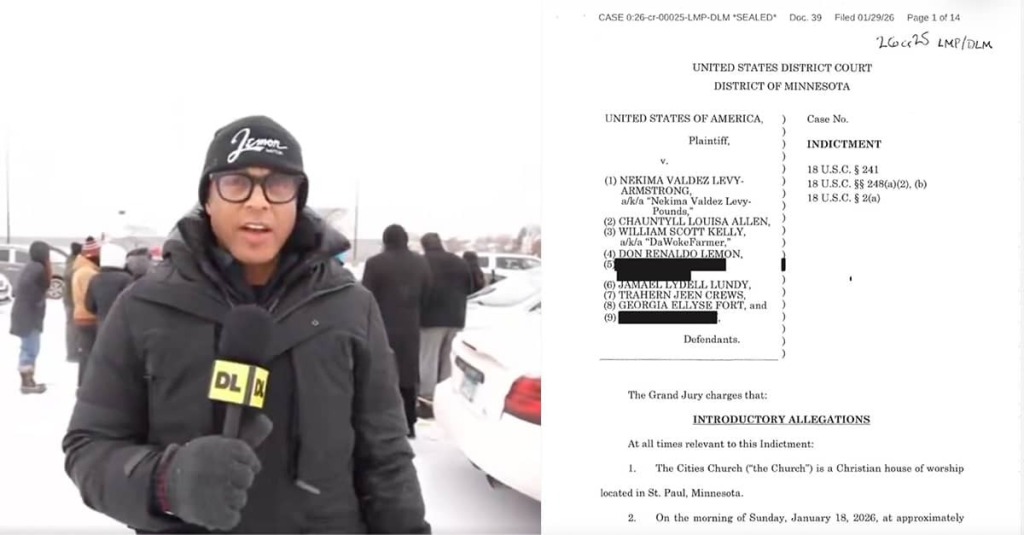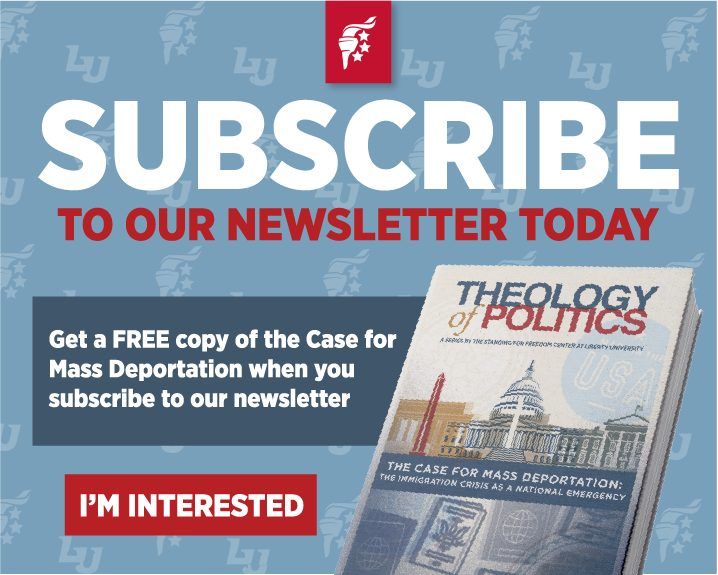“Patriotism is a sentiment. Nationalism, at its most basic level, is a political ideology. Christians can and should embrace both, as long as they are defined rightly, ordered well, and they do so in a biblically-informed fashion.”
–WILLIAM WOLFE
As the dying light of the post-war liberal order fades away, renewed conversations about the importance and benefits of nationalism have arisen.
Much could be said on this topic, but I want to deal with one comment I see regularly in these conversations — and that is the question of patriotism vs. nationalism.
Some people say, “Let’s just be patriots” because they (wrongly) think that nationalism is some big, bad, scary thing.
But that’s not the case. Let’s consider the difference between these two “isms” and see how they are similar, how they are different, how they can go wrong, and why both are good to embrace.
Basic Differences Between Patriotism and Nationalism
First, consider how they are different in essence. Patriotism is a sentiment. Nationalism, at its most basic level, is a political ideology. There is an essential difference — a difference of kind — between sentiment and ideology.
Let me repeat that, in a different way. Patriotism is a feeling, one of love, pride, or appreciation for one’s nation. It can be defined as “devotion to and vigorous support for one’s country.” Patriotism stands in contradistinction to feelings of disgust or embarrassment for one’s nation. Oftentimes, the opposite of a patriot is a traitor, like Benedict Arnold.
But nationalism is one way of understanding what a nation is and how it should be ordered in relation to other nations on the global stage. (Caveat: There can be nationalist sentiments, which we will also consider). The opposite of a nationalist is a globalist, like Klaus Schwab, the executive chairman of the World Economic Forum (WEF).
Patriotism doesn’t necessarily entail nationalism. You could be proud of your country, or have a strong sentimental affection for it, and yet argue in favor of open borders, which is a globalist policy. You could think America is the best country on earth, and yet not have any interest in saving American sovereignty from misguided international treaties like the Paris Climate Accords.
Conversely, nationalism doesn’t necessarily entail patriotism. You could be a political scientist or theorist in America and conclude, after your studies, that it is best for sovereign nation-states to exercise self-determination and independence. Yet, even though you think such a system is best, you could still believe America is the worst country on earth and be in the process of moving to Canada.
Second, I would propose that another key difference between patriotism and nationalism is a matter of context; that is, what is in view or reference to either one when the sentiment is expressed or the ideology is considered?
What I mean with regards to the contextual differences between patriotism and nationalism is this: A patriot says, “I am proud of my country” in reference to the country itself. The context is the character and quality of the nation. A nationalist says, “I desire that my country be free and that our government prioritizes the well-being of my fellow citizens first and foremost” in reference to the rest of the world. The context here is the relationship and responsibility of one nation, and its citizens, in regard to any demands or expectations of the international order.
Third, let’s examine more the content and expression of both. I’ve heard patriotism defined as “a well-ordered love for your country.” It is love, indeed, a strong emotional feeling and attachment, but it should always be an ordered love. For Christians, love for country is a love that takes its proper place in a Christian’s life, subservient to and circumscribed by our highest love for Christ. Is it good to be a patriot? It is entirely appropriate to both love and be devoted to your country and your fellow citizens. Christians should be people who love their country and love their Christ, but in the right order: First God, then family, and then country.
Patriotism is seen in our founding when the signers of the Declaration of Independence committed to “mutually pledge to each other our Lives, our Fortunes and our sacred Honor.” They were willing to die for their freedom, a desire for freedom that was inspired by their love for the American people and colonies.
Patriotism is displayed when we honor the flag of the United States as our national symbol. It’s shown by those who freely volunteer today to serve in our military. It’s a feeling, yes, but one that yields action which honors our nation and our values in the appropriate and ordered fashions. President Abraham Lincoln honored patriots in his Gettysburg Address, referring to them as those who “gave the last full measure of devotion” as they died in battle.
Nationalism, on the other hand, can be defined as the “principled standpoint that regards the world as governed best when nations are able to chart their own independent course, cultivating their own traditions and pursuing their own interests without interference” (Yoram Hazony, The Virtues of Nationalism).
Or consider how John Breuilly, the editor of The Oxford Handbook of the History of Nationalism, defines nationalism: It is the belief “that there exists a unique nation, that this nation has a special value and therefore right to existence and recognition, and that to secure this right the nation must possess autonomy, often understood as a sovereign nation-state.”
Here we see how nationalism is different from patriotism most clearly. According to the definitions just provided, one can clearly see how nationalism is one way of ordering international relations, and an ideology that provides a framework for adjudicating questions of priorities for sovereign nation-states who seek independence and self-determination. It’s far more than a sheer sentiment.
Nationalism draws from and builds on sources of national identity. These sources can include a shared ethnicity (while not a necessary prerequisite, it is often an existing reality), specific geography, and the maintenance and re-interpretation of values, symbols, memories, myths, and traditions. Another way to express this is that a nation is a named human population, occupying a specific land, with shared cultural myths, memories, and history.
Political nationalism, at this point in history, is largely unavoidable. The world as it exists today is (still) delineated and divided into specific nation-states. This is the more ordinary, prosaic nationalism. Before the existence of nations as we know them today, this idea, of distinct peoples, was manifest in “tribes” or “kingdoms,” which were personified by their leaders or monarchs. And subjects of the kings or rulers existed in specific territories.
The Holy Roman Empire, however, was an empire that transcended a variety of kingdoms and claimed a degree of rule over all for many hundreds of years. But with the Protestant Reformation and the Peace of Westphalia, the modern world began a centuries-long transition from territorial kingdoms to the modern nation-state.
However, it is not guaranteed that this will endure. Sovereign nation-states are certainly threatened by an imperialist China or globalist forces like the United Nations (U.N.), the World Health Organization (W.H.O.), or the WEF. As Dr. Hazony put it recently: “
“Nation-states are not a given reality. They exist only when they’re seen as a positive good and when a people strives constantly to maintain them. Otherwise they collapse. Nation states are not in good shape right now. They are besieged by liberal internationalism and neo-Marxism. They are fragmenting under this pressure. If Christians don’t see the nation-state as a positive good worth fighting for, they will lose their country.”
Common Missteps with Patriotism and Nationalism
Neither patriotism nor nationalism are immune from morphing into inappropriate or idolatrous forms.
Patriotism can become disordered when citizens who claim they “love their country” refuse to consider critique or allow any dissent. Or people can love their country so much that they begin to idolize it. It’s not impossible, even for Christians, to wrongly place a love for their country over love for God or concern for the truth. Deformed patriotism can lead to historical revisionism, where the hard truths about national sins and mistakes aren’t told in full. As Dr. John Wilsey reminds us, “One of the salient features of American patriotism is its willingness to reflect on America’s failures as well as its glories.” We should strive to preserve this feature.
Nationalism can also go south, particularly when it becomes more ideologically driven (that is, beyond just a political ideology for best ordering nations) or if it tries to teach citizens of one country to view their nation as superior to other nations such that they would be justified in invading or subjugating another people group. There can be ethnically-exclusive nationalism that is, or borders on, racism. All of that should be rejected.
You can see notes of both disordered patriotism and nationalism in the French national anthem, and its glorification of violence perpetrated by the French against invading armies from “other” nations. A more benign version of this would be the British national anthem, “Rule Britannia,” which boldly proclaims that “Britannia rule(s) the waves” and “Britons never, ever will be slaves.”
Idolatrous nationalism can occur when the nation rejects or supplants religion and becomes the object of worship or prime identity found in the nation. Whenever loyalty to the nation is primary above all things, you know that something has gone horrifically wrong. Historical examples of this would be the Soviet Union, and, in our modern day, Communist China.
Christians Can Be Both Patriots and Nationalists — As Long as They Are Biblical About It
To conclude, patriotism and nationalism share a point of departure — the unique nation — but have important differences. They are similar, but they are not interchangeable.
Patriotism, at its best, is a civic virtue, a sentiment, and an expression of appropriately-ordered love. For a Christian, this means hewing to the greatest commandment: To love the Lord with all your heart, soul, mind, and strength, and to love your neighbor as yourself (Matthew 22:37-40). Loving your neighbor, I would argue, includes patriotism. However, patriotism goes wrong when it turns from a well-ordered love into worship.
Nationalism can (and should) be understood to mean the simple appreciation for, and the preservation of, our modern geopolitical distinctions between nations. This is 1) expressed in an embrace of your own nation’s shared geography, culture, myths, traditions, and history; 2) a demand for your sovereign national government to prioritize your country first and foremost above the global order; and 3) the responsibility for a nation to defend against efforts by new imperialists or globalists to steal its sovereignty.
Loving your neighbor also includes nationalism, in an appropriate fashion. However, all nationalists must be careful that they don’t allow this principle of political organization to mutate into an overly ideological nationalism that denigrates other countries or ethnicities, or to allow it to be infused with providentialism, which views your own nation as “God’s chosen people” who are the modern-day inheritors of the Old Covenant promises and blessings.
From a Christian perspective, neither of these “isms” need to be rejected out of hand. Again, both can and should be embraced, in the appropriate manner. Acts 17:26-27 speaks to the reality of nations, telling us that
“From one man He made all the nations, that they should inhabit the whole earth; and He marked out their appointed times in history and the boundaries of their lands.”
Furthermore, God clearly gives His people commands to love those who are “closer” to them in nature of relationship with more specific and potent love than just anyone they may encounter, like in 1 Timothy 5:8:
“But if anyone does not provide for his own, and especially for those of his household, he has denied the faith and is worse than an unbeliever.”
Once you ensure your highest affections are set on Christ, loving your nation with a greater, more personal, and fulsome love than which you love other nations is appropriate. This is patriotism.
Also, it is neither sinful nor xenophobic to desire your own nation’s good, even over the good of other nations, if forced to choose. Supporting governing policies that will secure the life, liberty, and property of your fellow citizens against the threats of unchecked mass illegal immigration isn’t un-Christian — neither is rejecting the WEF (globalism) or pushing back on efforts by the U.N. or W.H.O. to mandate domestic policy. This is nationalism.
Thomas Aquinas, in his commentary on Galatians, writes, “It is not necessary that we love all equally because since the intensity of an act results from the principle of the action, and the principle of the action is union and similarity, we ought to love in a higher degree and more intensely those who are more like us and more closely united to us.”
One of the best expressions of ordered love, which is needed for both a rightly understood patriotism and nationalism, can be found in a haunting yet beautiful poem sometimes referred to as “The Two Fatherlands.” Sir Cecil Arthur Spring Rice, a British diplomat and ambassador to the United States during World War I, penned this poem, first entitled Urbs Dei (“The City of God”), which was later put to music as a hymn: “I Vow to Thee My Country.” In it, he explains how Christians can love our earthly homeland, fight for its sovereignty, and yet long for the eternal, higher, heavenly country at the same time:
“I vow to thee, my country, all earthly things above,
Entire and whole and perfect, the service of my love;
The love that asks no questions, the love that stands the test,
That lays upon the altar the dearest and the best;
The love that never falters, the love that pays the price,
The love that makes undaunted the final sacrifice.
And there’s another country, I’ve heard of long ago,
Most dear to them that love her, most great to them that know;
We may not count her armies, we may not see her King;
Her fortress is a faithful heart, her pride is suffering;
And soul by soul and silently her shining bounds increase,
And her ways are ways of gentleness, and all her paths are peace.”
Two countries — one on earth and one in Heaven. Christians should love both, longing for Heaven even as we seek our national good here on earth (first and foremost by sharing the Gospel and seeking to make disciples of Jesus Christ).
In summary, patriotism is a sentiment. Nationalism, at its most basic level, is a political ideology. Christians can and should embrace both, as long as they are defined rightly, ordered well, and they do so in a biblically-informed fashion.
Follow William on Twitter! @William_E_Wolfe
Ready to dive deeper into the intersection of faith and policy? Head over to our Theology of Politics series page where we’ve published several long-form pieces that will help Christians navigate where their faith should direct them on political issues.





